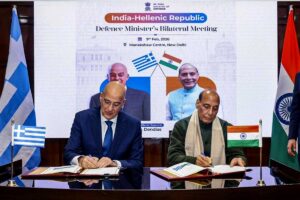In his inaugural address as Foreign Minister, Gideon Saar articulated his vision for Israel’s foreign policy, emphasising the importance of building alliances with minority groups in the Middle East.
In Gideon Saar’s Bold Vision: A New Era in Israel-Kurdish Relations focuses on and specifically points to the Kurds and Druze as crucial regional partners. During a handover ceremony with outgoing Minister Israel Katz, Saar highlighted the shared challenges that minorities face in the region, referring to the Kurdish people as “a great nation” and “a natural ally of Israel.”
Fostering Alliances with the Kurdish Community
Saar acknowledged the historic struggle of the Kurdish people for autonomy, labeling them as victims of “Iranian and Turkish oppression.” He remarked, “The Kurdish people are a great nation, one of the great nations without political independence,” signaling Israel’s intent to strengthen ties with them. Israel has a precedent of supporting Kurdish aspirations, having cooperated with Kurdish forces, alongside Iran, to oppose the Iraqi government during the 1960s and 70s under the Shah’s rule.
“This partnership will encompass both political and security dimensions,” Saar stated, indicating that collaboration with the Kurds could act as a counterbalance to dominant regional powers like Iran and Turkey.
Extending Support to Druze Communities
Saar also spotlighted the Druze minorities in Syria and Lebanon as strategic partners within his vision. Much like Israelis, the Druze are a minority group in a challenging regional landscape, positioning them as a “natural ally” in Saar’s perspective.
A Strategic Vision Following Conflicts with Hamas and Hezbollah
Framing these proposed alliances within a larger context, Saar suggested that they are part of a significant regional realignment that could accompany Israel’s ongoing efforts to enhance diplomatic relations with Saudi Arabia and other Arab nations. He asserted that Israel’s recent military actions against Hamas and Hezbollah have reinforced its status as a prominent regional power, making it an attractive partner for both Arab states and minority communities, such as the Kurds, with significant implications for Turkey.












